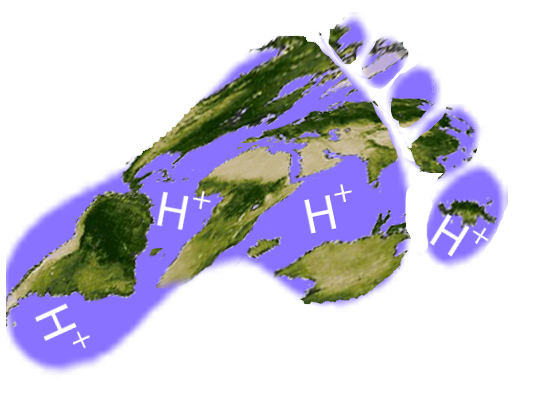
In addition to the famous impacts of atmospheric carbon on global warming, there is an equally worrisome effect of carbon dioxide on the oceans: ocean acidification (or OA for short). Here at I2SEA we have a series of resources about OA, including Our Acidifying Ocean, which is an introductory activity and virtual lab (note: now mobile compatible!).
A student suggested that we start a conversation topic about OA, and here it is! Have you heard about Ocean Acidification? If so, are you worried about it? How do you think we can best raise awareness about it among your fellow students and the general public? Have you seen particularly good links or films about OA that you would like to share? What are you doing to address the problem?
Ocean Acidification >
Ocean Acidification: Explanation, Effects, Ways to Help

Ocean acidification has become a very important and worrisome issue that needs to be addressed. According to a study performed by the Union of Concerned Scientists, the ocean has absorbed approximately 29% of the world's CO2 emissions since industrialization began. In the last 150 years humans have been burning increasing amounts of fossil fuel, which releases large amounts of greenhouse gasses into the atmosphere, one being CO2. This additional CO2 released in the atmosphere is the root of ocean acidification. Ocean acidification is the reaction between the large amounts of CO2 being absorbed and the sea water. When the CO2 first makes contact with sea water it dissolves, becoming carbonic acid, which later turns into bicarbonate ions and hydrogen ions. Ocean acidification occurs due to the lack of carbonate ions and an increase in hydrogen ions. Carbonate ions are responsible for maintaining the health of many species, including clams, muscles, phytoplankton, corals and crabs, who rely on it to build their hard skeletons. This is why ocean acidification has an incredibly negative effect on such species. Corals, one of the species affected, are one of the most biodiverse habitats in the ocean and because of this their destruction not only affects them, but also the large amount of marine species that are reliant on them. This issue not only affects marine life but also humans, so often we humans forget how much we truly rely on the ocean. We use the ocean as a constant source of food, transportation, medicine and enjoyable attractions that help better our economy. Since we are reliant on the ocean for so many things we can begin to see the extent of our connection to it. One of our largest connections is our reliance on it for food. The species being affected by ocean acidification are the basis of the marine food chain and if we allow this issue to continue to develop, it could have catastrophic effects on all species, including humans. Additionally, fishing and shellfishing from the ocean is a multimillion industry that so many people rely for employment. When ocean acidification begins to deplete the amount of shellfish and corals that house fish, the companies that rely on them will be forced to shut down, creating mass unemployment and more hunger. Not to mention that ocean acidification is responsible for a rise in the blooming of toxic algae, which has also contributed to fish and shellfishing companies having to shut down in order to prevent reactions to the contaminated fish and shellfish. These many effects are some of the reasons why bringing awareness to the issue of ocean acidification is so important. We need to begin to have conversations about this issue and ways we can create a more sustainable world to prevent ocean acidification from creating more damage. One way that we can address this issue is by supporting policies that go against the mass burning of fossil fuels. By doing this we get to the root of the issue so we can prevent the issues that stem from burning fossil fuels, one being ocean acidification, and their effects.






